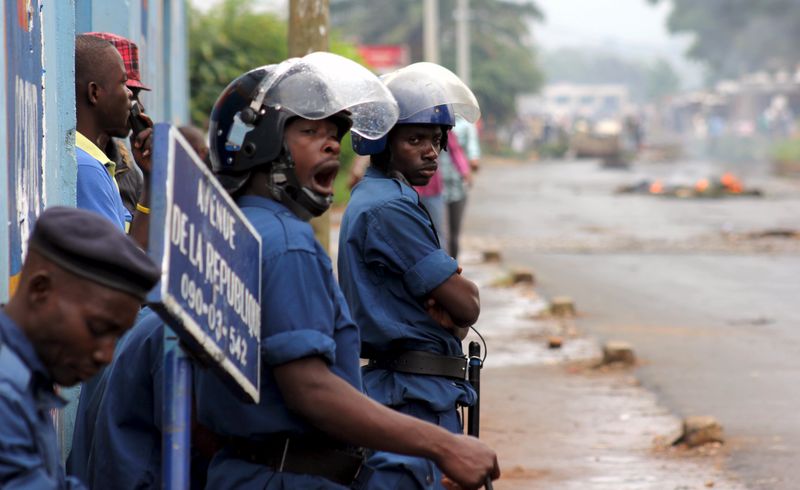BUJUMBURA (Reuters) - Nearly 40,000 refugees have fled Burundi to neighboring Rwanda, Tanzania and the Democratic Republic of the Congo in the last month, amid protests against President Pierre Nkurunziza's bid for a third term, the United Nations said on Wednesday.
More than a week of demonstrations have plunged the African nation into its worst crisis since an ethnically charged civil war ended in 2005. Civil society groups say a dozen people have been killed. Police say the death toll is half that number.
The opposition says Burundi's constitution and a peace deal that ended the civil war limits Nkurunziza to two terms.
But Burundi's constitutional court this week cleared the way for the president to run again in June, saying his first term did not count because he was picked by parliament not publicly elected.
About a dozen demonstrators gathered in the capital's Kinindo district on Wednesday, one of them holding a placard saying: "The constitutional court's decision will not stop us. Nkurunziza has to abandon the illegal term."
A Reuters witness saw about 200 protesters in another district. But most of Bujumbura's streets were relatively calm and police surrounded the scenes of recent flashpoints, a Reuters witness said.
The U.N. refugee agency UNHCR said 39,091 Burundians had sought asylum in neighboring states since the start of April.
At least 24,795 had gone to Rwanda, Tanzania had taken in 6,966 people and 7,319 have fled to Congo.
The number has been rising steadily on a daily basis, and diplomats say many people have left to stay with relatives in neighboring states and are not being registered as refugees in host countries.
Tanzania's presidential office said on Tuesday that a team of foreign ministers from Kenya, Tanzania, Uganda and Rwanda were traveling to Burundi to assess the situation.
"If there are people who feel that the nomination of the Burundi president for re-election is illegal, they should follow the course of justice to get to the truth and resolve the matter, not use force," Tanzanian President Jakaya Kikwete said in a statement.
The unrest has particularly worried Rwanda, still scarred by its 1994 genocide that killed more than 800,000 Tutsis and moderate Hutus. Burundi has a similar ethnic mix.

Nkurunziza, a former Hutu rebel leader, says the demonstrations are an "insurrectional movement".